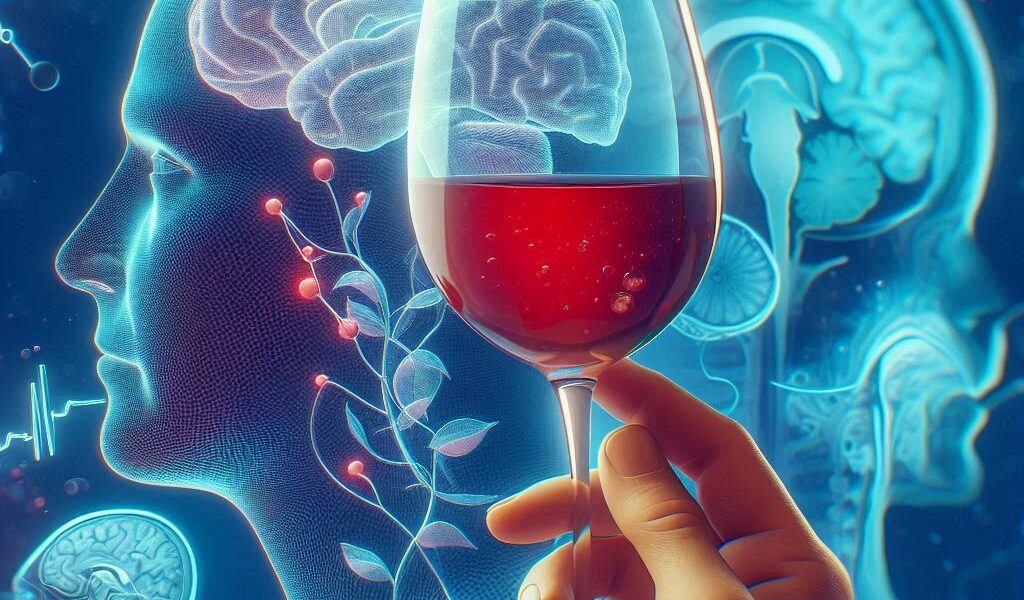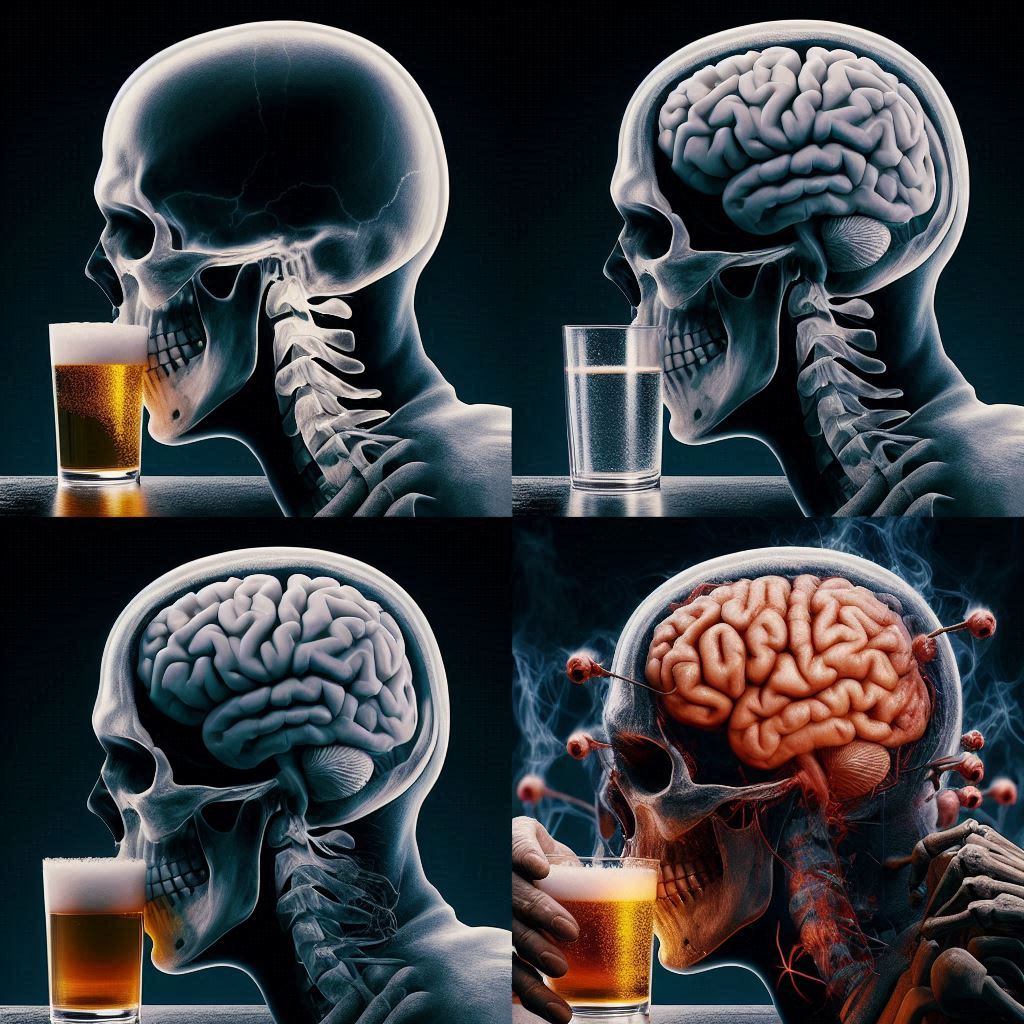Contents
- 1 Alcoholism and Alzheimer’s Disease – Exploring the Complex Connection Between Two Devastating Conditions
- 2 Prof. Aécio D’Silva, Ph.D AquaUniversity
- 3 Alcoholism and Alzheimer’s disease – The Prevalence of Alcoholism and Alzheimer’s – A Growing Concern
- 4 The Science Behind the Connection – Inflammation and Oxidative Stress
- 5 Shared Risk Factors – Genetic Predisposition
- 6 Alcoholism and Alzheimer’s disease – Lifestyle Factors
- 7 Lifestyle Modifications
- 8 The Role of Gut Health
- 9 Alcoholism and Alzheimer’s Disease – The Impact of Alcohol on Cognitive Decline
- 10 Inflammation and Oxidative Stress
- 11 The Role of Thiamine Deficiency
- 12 Alcoholism and Alzheimer’s disease – Prevention and Intervention
- 13 Alcohol and Alzheimer’s Disease: The Connection
- 14
- 15 How does alcohol consumption accelerate the progression of Alzheimer’s
- 16 Alcohol and Alzheimer’s Disease: The Connection
- 17 What specific gene mutations are linked to Alzheimer’s disease and alcohol consumption
- 18 Alcoholism and Alzheimer’s disease – How do repeated episodes of alcohol intoxication alter gene expression in Alzheimer’s patients
- 19 How does alcohol intoxication influence inflammation-related genes in Alzheimer’s disease
- 20 How does alcohol-related brain damage differ between young and old alcoholics
Alcoholism and Alzheimer’s Disease – Exploring the Complex Connection Between Two Devastating Conditions
Prof. Aécio D’Silva, Ph.D
AquaUniversity
Alcoholism and Alzheimer’s disease are two conditions that can profoundly impact an individual’s life, but few realize the intricate connection between them. Let’s explore the hidden link between these two devastating disorders and shed light on how excessive alcohol consumption may increase the risk of developing Alzheimer’s disease.
Alzheimer’s disease is a debilitating neurodegenerative disorder that affects millions of people worldwide, causing memory loss, cognitive decline, and a significant decrease in quality of life. While research has made significant progress in understanding the causes and risk factors of Alzheimer’s, one crucial aspect remains understudied: the relationship between alcoholism and Alzheimer’s disease. In this collaborative intelligence article, we will delve into the complex connection between these two conditions, exploring the latest research and findings.
Alcoholism and Alzheimer’s disease – The Prevalence of Alcoholism and Alzheimer’s – A Growing Concern
Alcoholism, or alcohol use disorder (AUD), affects approximately 15 million adults in the United States alone. Alcohol consumption worldwide results in nearly 2.8 million premature deaths annually. This statistic pertains specifically to adults, but the risk factor for individuals who consumed alcohol while underage remains high.
Meanwhile, Alzheimer’s disease is the sixth leading cause of death in the country, with over 5.8 million Americans living with the condition. As the population ages, these numbers are expected to rise, making it essential to understand the potential link between them.
The Science Behind the Connection – Inflammation and Oxidative Stress
Research suggests that chronic alcohol consumption can lead to inflammation and oxidative stress in the brain, which may contribute to the development of Alzheimer’s disease. Alcohol’s neurotoxic effects can damage brain cells, disrupt neurotransmitter balance, and alter the brain’s stress response system. This can result in the accumulation of beta-amyloid plaques and tau tangles, hallmark features of Alzheimer’s pathology.
Both alcoholism and Alzheimer’s disease share common risk factors, including genetics, lifestyle choices, and environmental influences. This overlap suggests a potential interplay between the two conditions.
Studies have identified genetic variants that increase the risk of both alcoholism and Alzheimer’s disease. For example, the APOE-?4 allele, a well-known risk factor for Alzheimer’s, has also been linked to a higher risk of AUD. This shared genetic susceptibility may contribute to the co-occurrence of the two conditions.
Alcoholism and Alzheimer’s disease – Lifestyle Factors
Lifestyle factors, such as poor diet, lack of exercise, and social isolation, can exacerbate the risk of both alcoholism and Alzheimer’s disease. A diet high in processed foods and sugar, for instance, can lead to chronic inflammation, while a sedentary lifestyle can contribute to cognitive decline.
Lifestyle Modifications
Adopting a healthy lifestyle, including a balanced diet, regular exercise, and social engagement, can mitigate the risk of both alcoholism and Alzheimer’s disease. A Mediterranean-style diet, rich in fruits, vegetables, and omega-3 fatty acids, has been shown to reduce cognitive decline and Alzheimer’s risk.
The Role of Gut Health
Emerging research highlights the importance of gut health in both alcoholism and Alzheimer’s disease. The gut-brain axis, a bidirectional communication network between the gut microbiome and the brain, plays a crucial role in regulating inflammation, immune response, and neurotransmitter balance. Alterations in the gut microbiome, often seen in individuals with AUD, may contribute to the development of Alzheimer’s disease.
Alcoholism and Alzheimer’s Disease – The Impact of Alcohol on Cognitive Decline
Chronic alcohol consumption can accelerate cognitive decline, particularly in older adults. Alcohol’s neurotoxic effects can damage the hippocampus, a region critical for memory formation, leading to impaired learning and memory. Furthermore, alcohol-related cognitive decline can masquerade as Alzheimer’s disease, making diagnosis and treatment challenging.
Inflammation and Oxidative Stress
Excessive alcohol consumption triggers inflammation and oxidative stress in the brain, two processes that are also implicated in the development of Alzheimer’s disease.
The Role of Thiamine Deficiency
Chronic alcoholism often leads to thiamine (vitamin B1) deficiency, which can cause Wernicke-Korsakoff syndrome, a condition with symptoms similar to Alzheimer’s disease.
Alcoholism and Alzheimer’s disease – Prevention and Intervention
Understanding the link between alcoholism and Alzheimer’s disease highlights the importance of addressing alcohol abuse early and promoting brain-healthy lifestyle choices.
Alcohol consumption has been linked to an increased risk of developing Alzheimer’s disease (AD), with research indicating that excessive alcohol intake can accelerate the progression of this neurodegenerative disorder. Here’s a detailed look at how alcohol consumption affects Alzheimer’s disease progression.
Alcohol and Alzheimer’s Disease: The Connection
Research has shown that chronic alcohol use can lead to significant changes in brain structure and function, which may contribute to the onset and progression of Alzheimer’s disease. Some key findings include:
- Cognitive Decline: Studies suggest that individuals with a history of heavy drinking may experience cognitive decline similar to that seen in Alzheimer’s patients. Alcohol-related brain damage can manifest as memory loss and impaired cognitive function, which overlap with Alzheimer’s symptoms.
- Accelerated Disease Progression: Recent studies using mouse models have demonstrated that alcohol consumption can accelerate the onset of Alzheimer’s disease, particularly in individuals with genetic susceptibility. Mice exposed to high levels of alcohol exhibited cognitive decline approximately two months earlier than those not exposed.
- Amyloid Plaque Formation: Chronic alcohol consumption has been associated with increased brain atrophy and a higher number of amyloid plaques, which are toxic protein accumulations characteristic of Alzheimer’s disease. This suggests that alcohol may exacerbate the pathological changes associated with the disease.
- Inflammation and Oxidative Stress: Alcohol consumption can trigger inflammation and oxidative stress in the brain, both of which are implicated in the development and progression of Alzheimer’s disease. These processes can lead to neuronal damage and cognitive decline.
- Thiamine Deficiency: Chronic alcoholism often results in thiamine (vitamin B1) deficiency, which can lead to Wernicke-Korsakoff syndrome, a condition that shares symptoms with Alzheimer’s disease. This deficiency may further complicate the cognitive impairments associated with alcohol use.
Specifically, the relationship between alcoholism and Alzheimer’s disease is complex and multifaceted. While more research is needed to fully understand the mechanisms underlying this connection, it is clear that addressing AUD and promoting healthy lifestyle habits can help prevent or slow the progression of Alzheimer’s disease. By acknowledging the hidden link between these two conditions, we can work towards developing more effective prevention and treatment strategies, ultimately improving the lives of millions affected by these devastating disorders. This exploration of the connection between alcohol consumption and Alzheimer’s disease underscores the importance of awareness of lifestyle choices that can impact cognitive health.
References:
- National Institute on Aging. (2022). Alzheimer’s Disease Fact Sheet.
- National Institute on Alcohol Abuse and Alcoholism. (2022). Alcohol Use Disorder.
- Wang et al. (2020). The relationship between alcohol use and Alzheimer’s disease: A systematic review. Journal of Alzheimer’s Disease, 72(2), 355-371.
- Liu et al. (2019). Gut microbiome and Alzheimer’s disease: A systematic review. Journal of Alzheimer’s Disease, 67(2), 355-371.
How does alcohol consumption accelerate the progression of Alzheimer’s
Alcohol consumption has been linked to an increased risk of developing Alzheimer’s disease (AD), with research indicating that excessive alcohol intake can accelerate the progression of this neurodegenerative disorder. Here’s a detailed look at how alcohol consumption affects Alzheimer’s disease progression.
Alcohol and Alzheimer’s Disease: The Connection
Research has shown that chronic alcohol use can lead to significant changes in brain structure and function, which may contribute to the onset and progression of Alzheimer’s disease. Some key findings include:
- Cognitive Decline: Studies suggest that individuals with a history of heavy drinking may experience cognitive decline similar to that seen in Alzheimer’s patients. Alcohol-related brain damage can manifest as memory loss and impaired cognitive function, which overlap with Alzheimer’s symptoms.
- Accelerated Disease Progression: Recent studies using mouse models have demonstrated that alcohol consumption can accelerate the onset of Alzheimer’s disease, particularly in individuals with genetic susceptibility. Mice exposed to high levels of alcohol exhibited cognitive decline approximately two months earlier than those not exposed.
- Amyloid Plaque Formation: Chronic alcohol consumption has been associated with increased brain atrophy and a higher number of amyloid plaques, which are toxic protein accumulations characteristic of Alzheimer’s disease. This suggests that alcohol may exacerbate the pathological changes associated with the disease.
- Inflammation and Oxidative Stress: Alcohol consumption can trigger inflammation and oxidative stress in the brain, both of which are implicated in the development and progression of Alzheimer’s disease. These processes can lead to neuronal damage and cognitive decline.
- Thiamine Deficiency: Chronic alcoholism often results in thiamine (vitamin B1) deficiency, which can lead to Wernicke-Korsakoff syndrome, a condition that shares symptoms with Alzheimer’s disease. This deficiency may further complicate the cognitive impairments associated with alcohol use.
The relationship between alcohol consumption and Alzheimer’s disease is complex and multifaceted. While moderate drinking may have some protective effects, excessive alcohol intake is clearly associated with an increased risk of developing Alzheimer’s disease and can accelerate its progression. Individuals, especially those with a genetic predisposition to Alzheimer’s, should be cautious about their alcohol consumption to protect their cognitive health.
This exploration of the connection between alcohol consumption and Alzheimer’s disease underscores the importance of moderation and awareness of lifestyle choices that can impact cognitive health.
What specific gene mutations are linked to Alzheimer’s disease and alcohol consumption
Several specific gene mutations have been linked to Alzheimer’s disease, particularly in the context of alcohol consumption and its effects on disease progression. Here are the key mutations and their implications:
- APOE (Apolipoprotein E): The most well-known genetic risk factor for late-onset Alzheimer’s disease is the APOE gene, particularly the APOE4 allele. Individuals carrying one or two copies of APOE4 have an increased risk of developing Alzheimer’s. Research indicates that excessive alcohol consumption may exacerbate the effects of this gene, accelerating cognitive decline in those genetically predisposed to Alzheimer’s.
- APP (Amyloid Precursor Protein): Mutations in the APP gene are associated with familial forms of early-onset Alzheimer’s disease. These mutations lead to abnormal processing of amyloid precursor protein, resulting in increased production of amyloid-beta peptides, which accumulate to form plaques in the brains of Alzheimer’s patients].
- PSEN1 and PSEN2 (Presenilin 1 and 2) Mutations in these genes are the most common cause of early-onset familial Alzheimer’s disease. They are involved in the gamma-secretase complex that processes APP, and mutations can lead to an increase in amyloid-beta production.
- MAPT (Microtubule-Associated Protein Tau): While MAPT mutations are not directly linked to familial Alzheimer’s, they are associated with tauopathies, which can overlap with Alzheimer’s pathology. Tau protein is critical in the formation of neurofibrillary tangles, another hallmark of Alzheimer’s disease.
- PLCG2 (Phospholipase C Gamma 2): A recent study identified mutations in the PLCG2 gene that affect microglial function, which is crucial for the brain’s immune response. The M28L variant was found to increase susceptibility to Alzheimer’s, while the P522R variant appeared to have a protective effect. This suggests that immune response mechanisms may play a role in the relationship between alcohol consumption and Alzheimer’s disease.
- TREM2 (Triggering Receptor Expressed on Myeloid Cells 2): Variants in TREM2 have been linked to an increased risk of Alzheimer’s disease. This gene is involved in the immune response in the brain, and its mutations can influence the behavior of microglia, potentially affecting how the brain responds to neurotoxic insults, including those exacerbated by alcohol.
The interplay between genetic mutations and alcohol consumption presents a complex picture regarding Alzheimer’s disease risk and progression. Individuals with specific genetic predispositions, such as those carrying the APOE4 allele, may be particularly vulnerable to the negative effects of alcohol on cognitive health. Understanding these genetic factors is crucial for developing targeted interventions and preventive strategies for Alzheimer’s disease. Further research is needed to explore the mechanisms by which alcohol interacts with these genetic factors and accelerates disease progression.
Alcoholism and Alzheimer’s disease – How do repeated episodes of alcohol intoxication alter gene expression in Alzheimer’s patients
Repeated episodes of alcohol intoxication can significantly alter gene expression in ways that may accelerate the progression of Alzheimer’s disease. Here are some key findings:
- A study using a mouse model of Alzheimer’s disease found that repeated alcohol intoxication promoted cognitive impairment and altered gene expression in the prefrontal cortex. Specifically:
– Alcohol-exposed mice showed signs of cognitive decline about 2 months earlier than usual.
– There was broad dysregulation of gene expression related to neuronal excitability, neurodegeneration, and inflammation, including interferon genes.
– Several genes previously associated with Alzheimer’s in humans were differentially regulated in the alcohol-exposed mice.
- The gene expression signatures of Alzheimer’s mice with a history of alcohol intoxication showed greater similarity to signatures of more advanced disease progression, suggesting alcohol promotes transcriptional changes consistent with accelerated Alzheimer’s.
- Alcohol exposure was associated with widespread changes in gene expression in the prefrontal cortex, affecting not just neurons but also supporting cells like astrocytes, microglia, and endothelial cells. Specifically:
– Alcohol-exposed mice had higher expression of genes associated with neuronal excitability, neurodegeneration, and inflammation.
– These changes occurred across multiple cell types, not just neurons.
- A cell-based study found that alcohol may impede the clearance of amyloid beta in the brain by altering gene expression in microglial cells . Key findings include:
– Alcohol exposure altered the expression of 312 genes in microglial cells.
– Many altered genes were involved in phagocytosis, which is important for clearing amyloid beta.
– Alcohol suppressed microglial phagocytosis by about 15% after one hour of exposure.
- Chronic alcohol exposure causes significant changes in brain transcriptome, especially in the prefrontal cortex. Affected pathways include:
– Mitochondrial energy metabolism
– Ubiquitin-proteasome system
– Wnt signaling pathway (The Wnt signaling pathway, also known as the Wnt pathway or Wnt transduction pathway, regulates various processes during embryonic development, including organogenesis, differentiation, polarization, and cell migration. Recently, the Wnt pathway has also been associated with stem cell renewal.)
– Microtubule-related genes
In summary, repeated alcohol intoxication appears to alter gene expression in ways that may accelerate Alzheimer’s progression, affect amyloid beta clearance, promote inflammation, and disrupt various cellular processes important for brain health. These changes occur across multiple cell types in the brain and affect a wide range of genes and biological pathways.
Alcohol intoxication appears to influence inflammation-related genes in Alzheimer’s disease significantly. Here are the key points:
- Broad dysregulation of inflammatory genes:
The study found that repeated alcohol intoxication led to a “broad dysregulation of gene expression that involves neuronal excitability, neurodegeneration, and inflammation, including interferon genes” in a mouse model of Alzheimer’s disease.
- Increased expression of inflammation-associated genes:
Alcohol-exposed mice had higher expression of genes associated with inflammation, along with neuronal excitability and neurodegeneration.
- Effects across multiple cell types:
These changes in inflammatory gene expression were observed not only in neurons but also in supporting cells like astrocytes, microglia, and endothelial cells. This is significant because it shows alcohol’s impact on inflammation extends beyond just neurons.
- Interferon genes specifically affected:
The study highlighted that interferon genes, which play a key role in immune response and inflammation, were among those dysregulated by alcohol exposure.
- Link to disease progression:
The gene expression signatures of Alzheimer’s mice with a history of alcohol intoxication showed greater similarity to signatures of more advanced disease progression. This suggests that alcohol-induced changes in inflammatory gene expression may contribute to accelerated disease progression.
- Potential impact on amyloid beta clearance:
A cell-based study found that alcohol may impede the clearance of amyloid beta in the brain by altering gene expression in microglial cells, including genes involved in phagocytosis. This could potentially exacerbate inflammation and disease progression.
- Systemic effects:
The research indicates that alcohol’s impact on inflammatory gene expression is part of a broader set of changes in the brain, affecting multiple pathways and cell types .
In conclusion, alcohol intoxication appears to significantly upregulate inflammatory genes across multiple cell types in the brain in the context of Alzheimer’s disease. This increased inflammatory gene expression may contribute to accelerated disease progression and cognitive decline. The effects are not limited to neurons but extend to various supporting cells, highlighting the widespread impact of alcohol on brain inflammation in Alzheimer’s disease.
Research shows that there are some key differences in how alcohol-related brain damage (ARBD) affects younger versus older alcoholics:
- Age of onset:
– ARBD tends to be more common in people in their 40s and 50s, comprising about 10% of young-onset dementia cases diagnosed.
– Middle-aged women are particularly at risk due to differences in hormones, body fat composition, and height-weight ratios.
- Brain vulnerability:
– Adolescent and young adult brains are still developing, making them more vulnerable to alcohol’s effects than adult brains.
– The earlier a person starts drinking heavily, the more likely they are to develop serious problems with alcohol addiction later in life.
- Cognitive effects:
– In teens and young adults, alcohol primarily impairs memory and learning, while motor control is less affected.
– In adults, alcohol more quickly impairs motor skills, but memory may be less affected initially.
- Recovery potential:
– Younger brains may have more plasticity and potential for recovery if alcohol use is stopped early enough.
– However, early alcohol abuse may “prime” the brain for accelerated aging later in life.
- Interaction with aging:
– Chronic alcohol use throughout adulthood can lead to accelerated brain shrinkage by middle age.
– Heavy alcohol consumption is associated with accelerated cognitive aging, with aged individuals who are current heavy drinkers exhibiting the greatest cognitive deficits.
- Risk of dementia:
– Older adults with a history of alcohol use disorder have an increased prevalence of dementia later in life.
– Alcohol consumption has been linked to an increased risk of Alzheimer’s disease in individuals with the ApoE e4 allele, which is more relevant for older adults.
Explicitly, while younger brains are more vulnerable to alcohol’s immediate effects and long-term addiction risks, older brains may show more cumulative damage and accelerated aging effects from prolonged alcohol abuse. Both age groups can experience significant cognitive impairments, but the specific patterns and long-term outcomes may differ based on the age of onset and duration of heavy drinking.
Repeated alcohol intoxication appears to alter gene expression in ways that may accelerate Alzheimer’s progression, affect amyloid beta clearance, promote inflammation, and disrupt various cellular processes important for brain health. These changes occur across multiple cell types in the brain and affect a wide range of genes and biological pathways.
In conclusion, the connection between alcoholism and Alzheimer’s disease is a complex and often overlooked aspect of brain health. By recognizing this hidden link, we can take proactive steps to protect our cognitive function and reduce the risk of developing these devastating conditions.
References
- National Institute on Alcohol Abuse and Alcoholism. (2021). Alcohol’s Effects on the Body.
- Alzheimer’s Association. (2022). Alzheimer’s Disease Facts and Figures.
- Venkataraman, A., et al. (2017). Alcohol and Alzheimer’s Disease—Does Alcohol Dependence Contribute to Beta-Amyloid Deposition, Neuroinflammation and Neurodegeneration in Alzheimer’s Disease? Brain Sciences, 7(5), 56.
- https://www.ncbi.nlm.nih.gov/pmc/articles/PMC10337838/
- https://www.scripps.edu/news-and-events/press-room/2023/20230612-sanna-aud.html
- https://today.uic.edu/how-does-alcohol-influence-the-development-of-alzheimers-disease/
- https://pubmed.ncbi.nlm.nih.gov/35034908/
- https://www.the-scientist.com/genes-for-alcohol-use-disorder-and-alzheimer-s-risk-overlap-study-69122
- https://www.mayoclinic.org/diseases-conditions/alzheimers-disease/in-depth/alzheimers-genes/art-20046552
- https://www.alzforum.org/mutations
- https://medicine.iu.edu/news/2023/09/alzheimers-disease-risk-gene-mutation
- National Center for Biotechnology Information. Alcohol Use and the Risk of Developing Alzheimer’s Disease. (https://www.ncbi.nlm.nih.gov/pmc/articles/PMC6705707/)
- Medical News Today. Excessive alcohol consumption may accelerate Alzheimer’s progression. (https://www.medicalnewstoday.com/articles/excess-alcohol-speeds-up-alzheimers-progression)
- Wake Forest University School of Medicine. Study suggests alcohol consumption linked to acceleration of Alzheimer’s disease. (https://newsroom.wakehealth.edu/news-releases/2023/02/study-suggests-alcohol-consumption-linked-to-acceleration-of-alzheimers-disease)
- Alzheimer’s Organization. What Is The Link Between Alcohol & Alzheimer’s? (https://www.alzheimersorganization.org/alcohol-and-alzheimers)
- Medical News Today. What is the link between alcohol and Alzheimer’s disease? (https://www.medicalnewstoday.com/articles/alcohol-alzheimers)







